Are you feeling a bit lost in your academic journey? Setting up an appointment with your academic advisor can be a game-changer in helping you navigate your course selections, study strategies, and future career paths. It's a great opportunity to get personalized guidance and support tailored to your unique needs and goals. If you're curious about how to make the most of your advisor meetings, read on for some helpful tips!

Subject Line Optimization
Subject line optimization is crucial for ensuring clear communication and effective scheduling for academic advisor appointments. Utilizing concise and informative phrases can enhance recipient engagement and response rates. Consider subject lines like "Request for Academic Advising Appointment - [Your Full Name]" or "Availability Inquiry for Academic Advisor Meeting - [Your Major/Program]". Including specific details, such as your academic level (e.g., freshman, senior) or purpose (e.g., course selection, academic concerns), in the subject line can provide context for the advisor, facilitating timely and relevant responses. Employing keywords related to academic advising enhances the likelihood of your email being prioritized and addressed promptly by the academic staff in charge.
Salutation and Formal Greeting
Academic advisors play a crucial role in guiding students through their educational journeys at institutions such as universities and colleges. Effective communication with these advisors is essential for academic success, particularly in addressing course selections, degree requirements, and career guidance. Scheduling an appointment with an academic advisor typically involves polite salutation and formal greeting to establish a respectful and professional tone. Utilizing proper titles and acknowledging their expertise can foster a positive rapport. Additionally, specifying the purpose of the meeting can help advisors prepare adequately to provide tailored advice and support.
Purpose and Clarity of Appointment
An academic advisor appointment is essential for students navigating their educational journey at universities, ensuring clarity in academic goals and coursework selection. This meeting typically focuses on discussing degree requirements, such as the General Education courses essential for graduation, and specific program prerequisites mandated by departments like Mathematics or Biology. The appointment provides a platform for students to seek guidance on academic performance, including GPA considerations, study strategies, or potentially beneficial resources like tutoring services. Additionally, students may address future career pathways during these discussions, exploring opportunities at local internships or graduate programs. Engaging proactively with an academic advisor enhances students' understanding of institutional policies and helps to align their academic plans with personal and professional aspirations.
Availability and Scheduling Preferences
Academic advisors play a crucial role in guiding students through their educational journey at universities such as Harvard, Stanford, or the University of California. The process of scheduling an appointment often involves navigating various availability options, which may include office hours typically held on weekdays from 9 AM to 5 PM. Students typically prefer to align their schedules, considering class timings and extracurricular commitments, resulting in peak request times, especially during registration periods. Some advisors utilize online platforms such as Calendly or university-specific scheduling systems, allowing for streamlined appointment setting. Furthermore, preferences for in-person meetings at designated academic buildings versus virtual consultations via Zoom or Microsoft Teams can influence the decision-making process for both students and advisors.
Contact Information and Closing Politeness
Scheduling an academic advising appointment can greatly enhance a student's educational experience, leading to improved course selections and career pathways. To arrange such a meeting, students often reach out to their designated academic advisor through university email systems. Typical contact details include the advisor's office phone number (which may vary by academic department) and their office location, often within the Student Services Building or Academic Advising Center. Closing remarks in an email or message typically express gratitude for the advisor's assistance and convey a professional tone, which may enhance future interactions. Students should utilize a respectful closing phrase, ensuring clarity and politeness throughout the appointment request process.

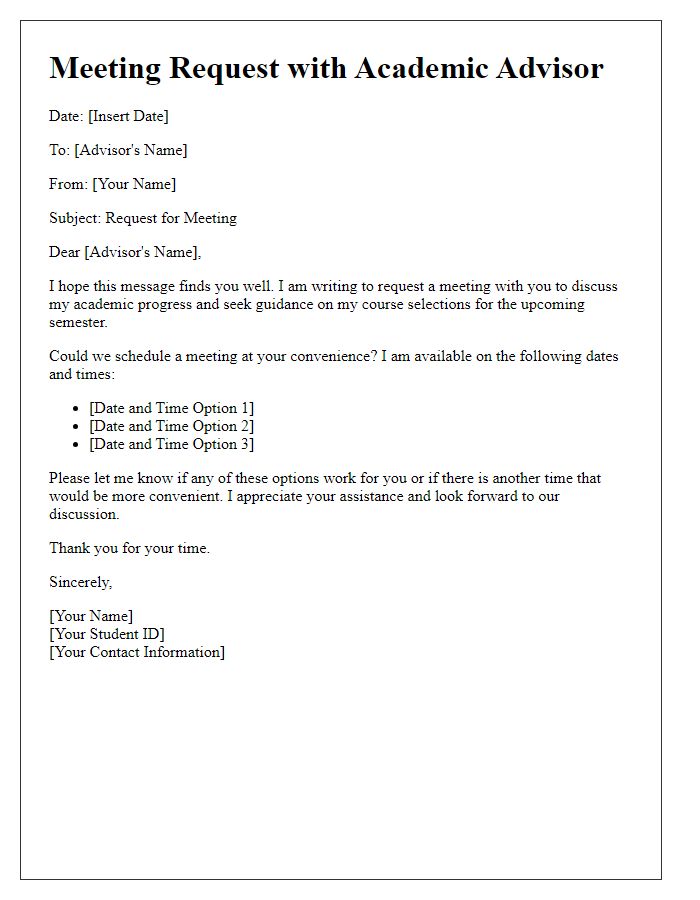
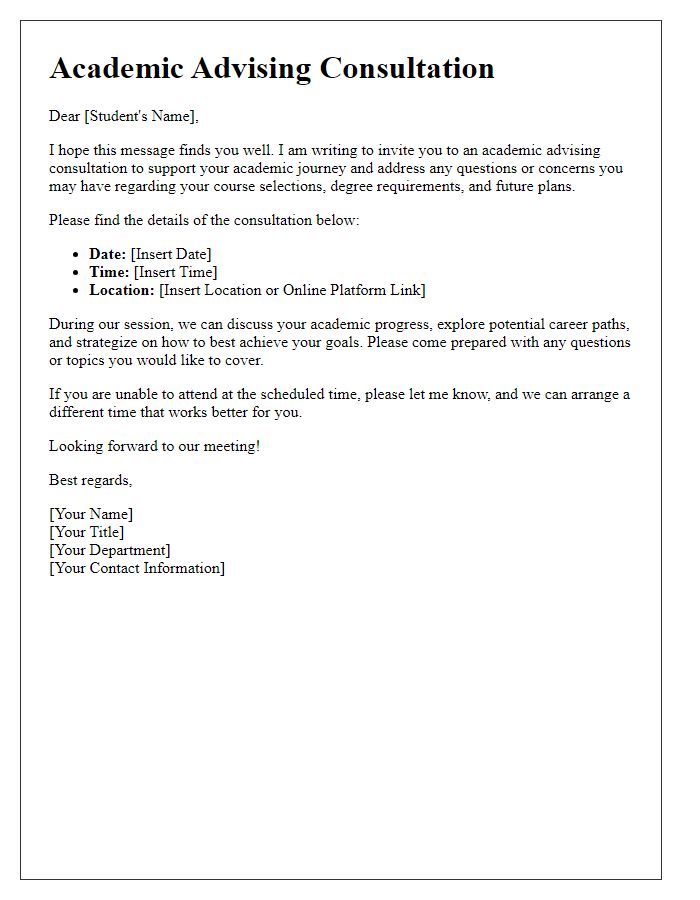
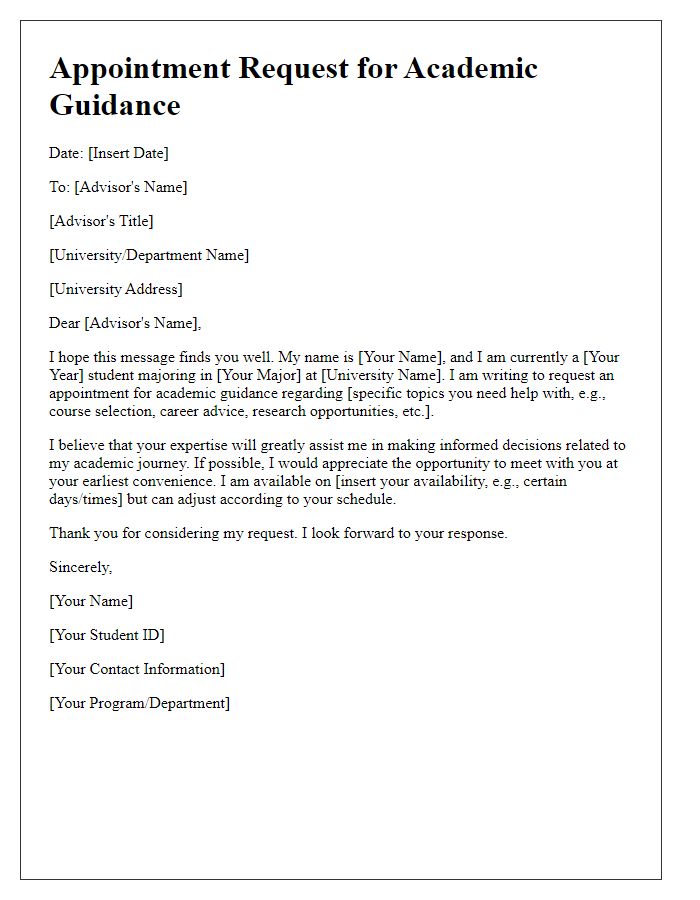
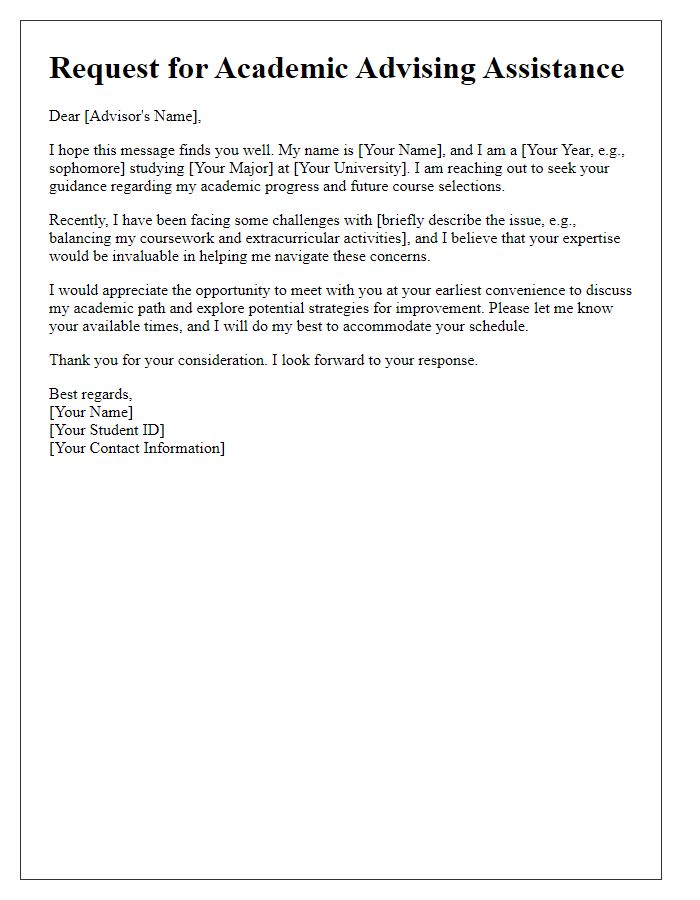
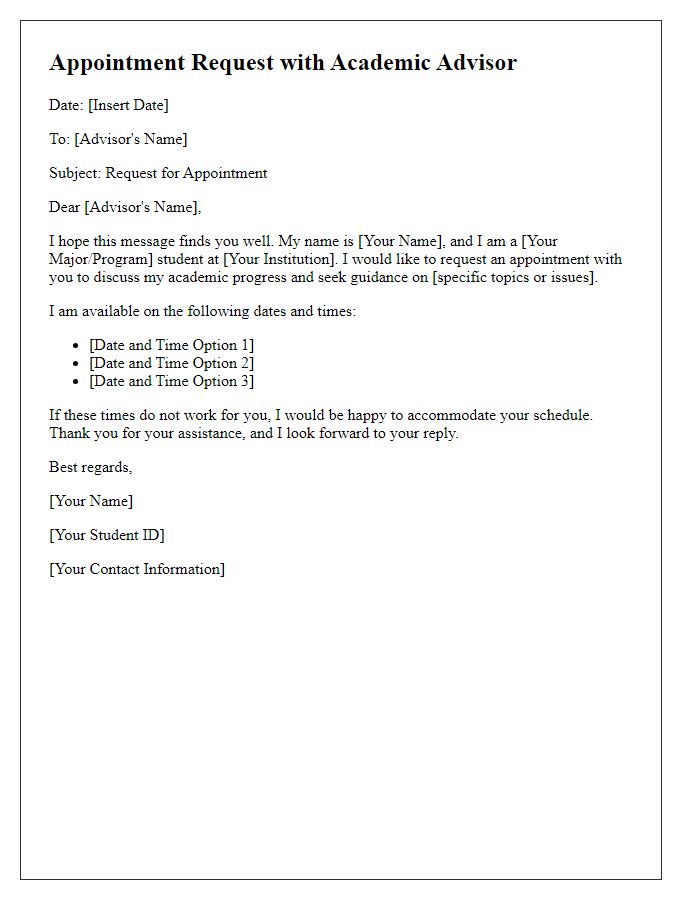
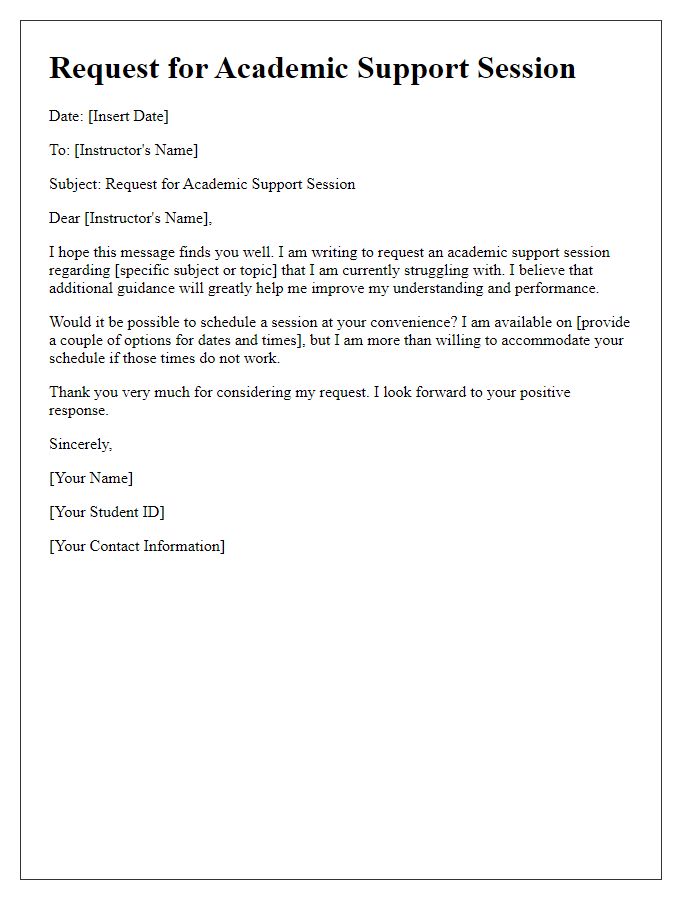
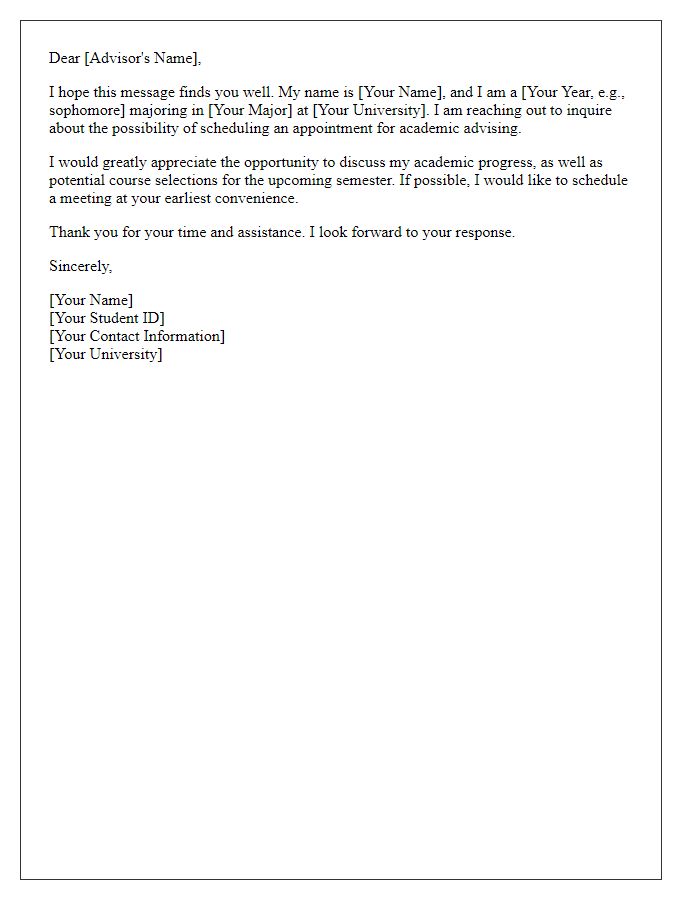
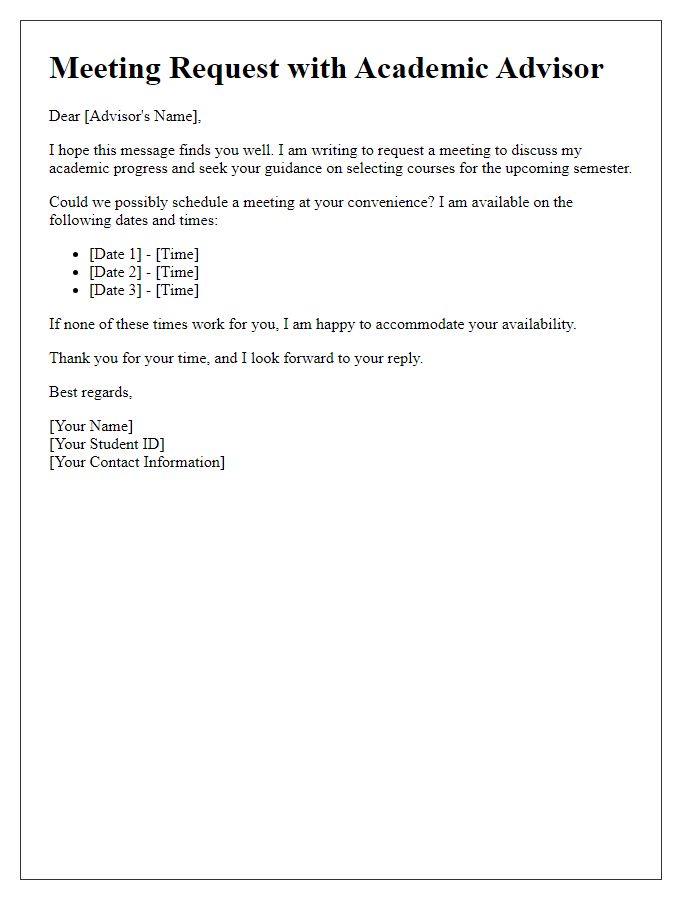
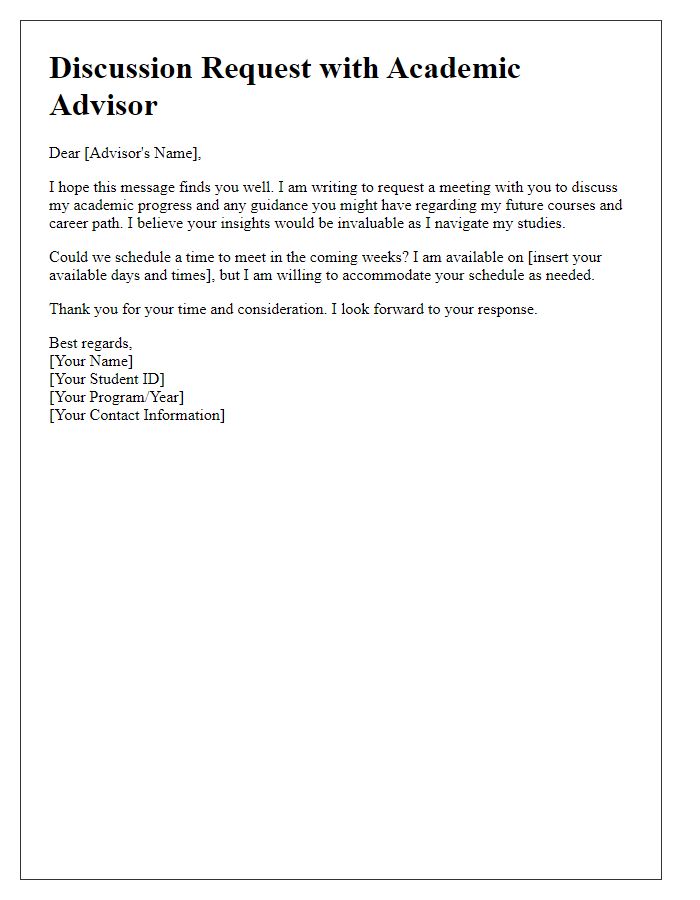
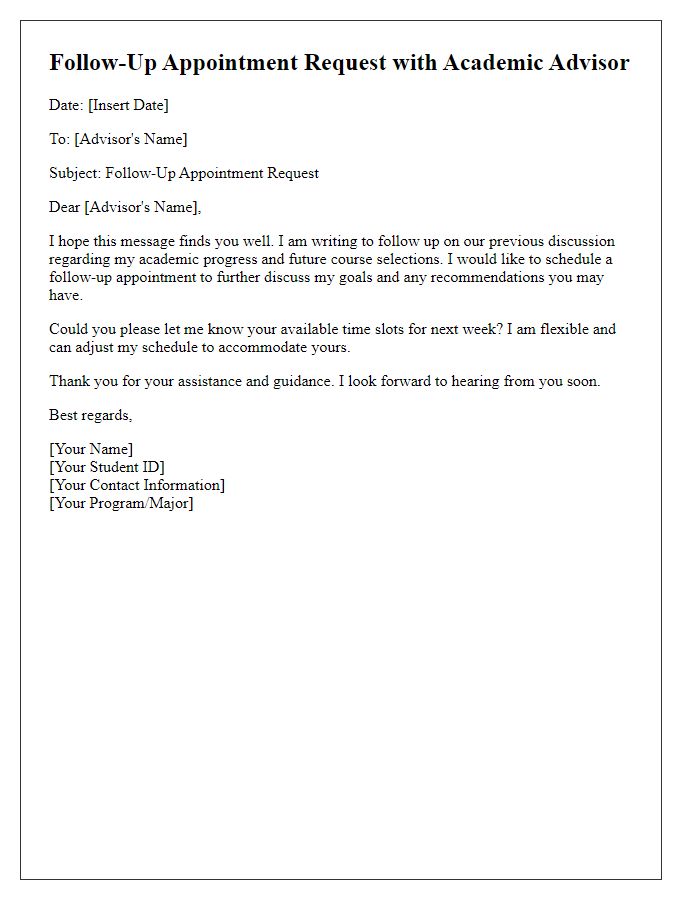


Comments